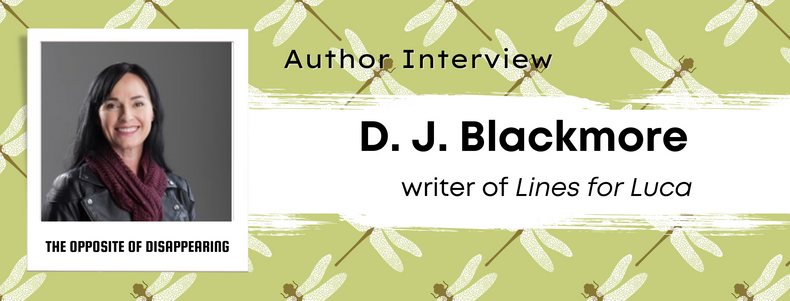Writer of Lines for Luca
1. Other than the theme for the anthology, what was your inspiration for your short story?
“You can’t understand someone until you walk a mile in their shoes.” Mary T. Lathrap’s 1895 poem Judge Softly, was later titled ‘Walk a Mile in His Moccasins’. It’s a phrase most of us know. In Lines For Luca I took the liberty to step into the shoes of a homeless person, someone whom for the most part is ignored by society. Yet rather than focusing on what the majority of us would see as the underprivileged life of a marginalised youth, I wanted to draw his character with the iridescence of a bird’s wing, only revealed in the words he pens. He refers to himself as “A beggaring bird,” but I wanted readers to see the beauty in his faith for daily providence. My inspiration came from Matthew 6:26, quoted at the start of the story.
2. Did you learn anything from writing your story? Is there something you hope people will learn when they read it?
We often act as judge and jury without considering the beauty we are born with. Imago Dei—the image of God is a belief of many faiths that states that we are all created in His image. It is a reminder firstly to me that we can only see the loveliness of another soul when we choose to open the eyes of our hearts.
3. How did your character/s come to you? Were they difficult, were they easy?
In a sense, I am Israel. The character’s name is symbolic. Just as the Jews were the children of God, in a similar sense, I see my words are the gift given to me to pen for others. I have never experienced homelessness, but I have felt the anonymity in this vast world. I often don’t realise these details in my writing on a conscious level until I analyse them later. The words are given to me, and I put them down—perhaps a mouthpiece rather than the creator.
4. What kind of writing style or preferences do you have? Are they similar to your short story?
I don’t like to waste words when I write. I don’t really do fast food or fillers, sentences to fill the void. I see words as colours, jewels or delicacies. In a sense I want to hit the reader’s taste buds, allow them the experience of savouring the sensation and never forgetting the flavour. Literary fiction is my preferred writing style, and I allow myself this indulgence in my short-stories. Yet the way I write is also dependant on setting, characters and timeline. The narration as well as character voices, are subject to the genre and themes. I think it’s important to the realism of a story.
5. Do you have a favourite genre that you love to read? Or perhaps a favourite writing style?
I am particularly partial to intrigue. I enjoy poring over a whodunnit with a romantic element. I also enjoy literary fiction, either contemporary or historical. Sometimes a great book will impress regardless of genre. A few favourite books written by others have been To Kill a Mockingbird, Peace Like a River and The Last Sin Eater, all young adult titles. What I enjoy about YA fiction is that the suggested age is so broad, often told with a young narrating style that echoes childhood, yet with an acceptance and appreciation of endless possibilities.
6. Without giving too much away, could you tell us a little about your short story?
Israel is a victim of circumstance. He is homeless yet he is so much more than people see. “He begged the beautiful out of the moments of passing pedestrians, pressing them onto the pages of forever with his words”. He pens prose for passers-by. And I guess that as an author, this sums up exactly what I endeavour to do.

